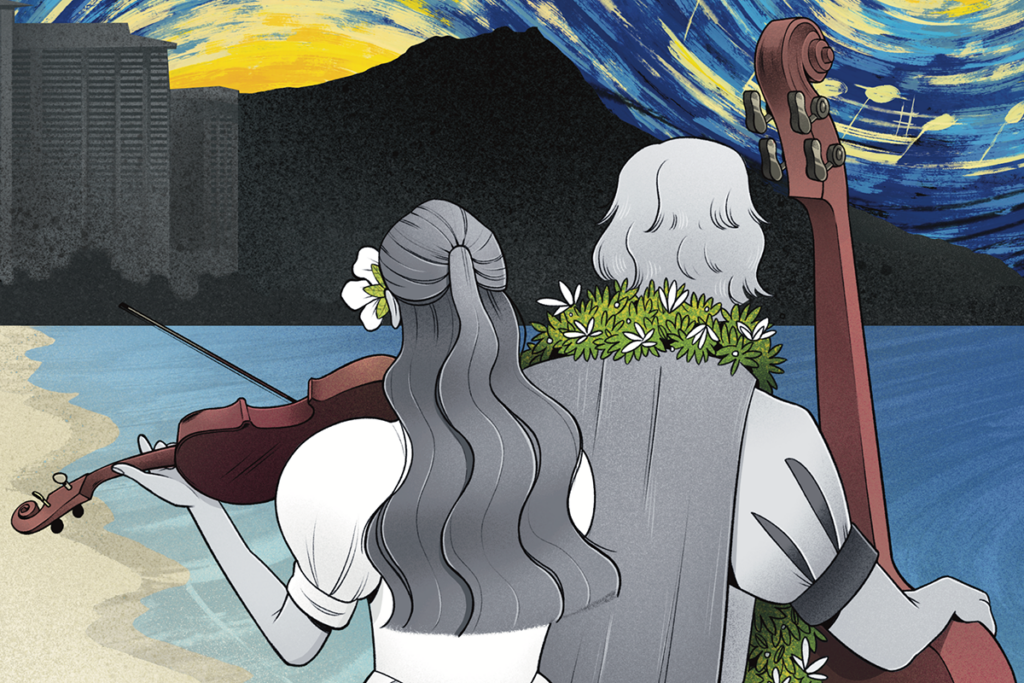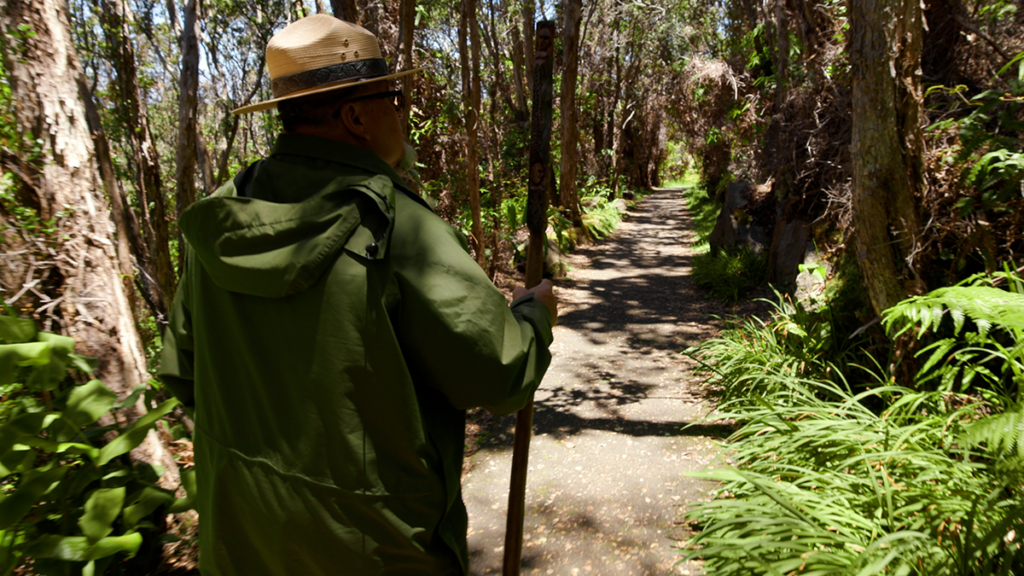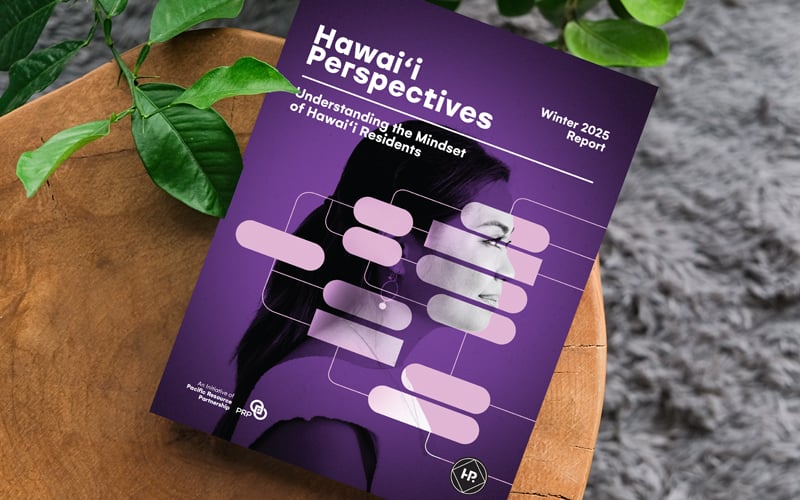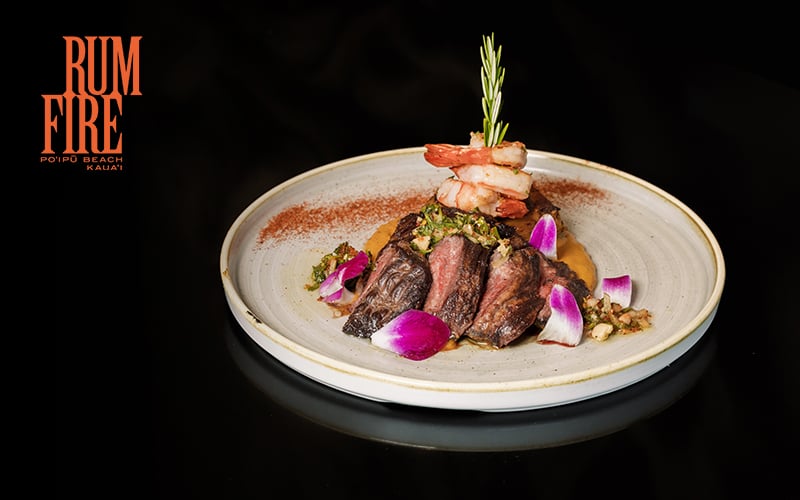If
someone gave you $10,000, and said you couldn’t save it or give it to charity,
but had to spend it on yourself, would that be a problem? For most of us, probably
not. But after years of working through weekends for minimal pay and stretching
thin budgets to keep organizations afloat, some of Hawai’i’s most dedicated nonprofit
leaders found themselves shocked and momentarily paralyzed by just such a gift.
The $10,000 Ho’okele Awards are given annually since they were created in 2002
by the Hawai’i Community Foundation (HCF) and the Wallace Alexander Gerbode Foundation.
HCF president and CEO, Kelvin Taketa, set two requirements for the Ho’okele Awards:
Recipients must spend the money on their own professional development and personal
renewal-putting it back into their organization is forbidden-and they must detail
how they used the cash 12 months later at the next Ho’okele celebration.“It
was permission to be self-indulgent, and nonprofit people just don’t do that very
often,” says Marsha Erickson, a 31-year veteran of nonprofit work, who won in
2003 for her leadership as executive director of Hui o Laka, which operates the
Koke’e Natural History Museum on Kaua’i, along with several other projects. “Nonprofit
people are not personally ambitious, but they are extraordinarily ambitious for
their missions.” All of the giving and begging wears you out, she says. “It’s
one endless campaign.” Erickson is still spending her grant on Neighbor
Island trips to visit family, dinners for friends, Hawaiian reference books for
all of her grandchildren, an upcoming Buddhist retreat in Florida and a large,
red leather chair and sofa set in which the bibliophile plans to devour books.
She says the award gave her such a boost that she feels ready to pursue another
10 years in the often thankless and anonymous world of nonprofit advocacy.  | 2003
Ho‘okele Award winners pictured from left to right: Marsha Erickson (Hui
o Laka/Koke‘e Natural History Museum); co-winners George Kon and Walt Dulaney
(Alliance for Drama Education); Hardy Spoehr (Papa Ola Lokahi); and B. Puni Kekauoha
(Papako-lea Community Development Corp.). |
Walt Dulaney
and George Kon split the $10,000 award last year for their work with the Alliance
for Drama Education and the T-Shirt Theatre of Kalihi. At the time, the secretary
at Kalihi High School-and Kon’s close friend-was diagnosed with breast cancer
and given four months to live. All she wanted was another trip with her family.
Kon paid for that last vacation to Alaska, just before she entered a hospice. Simultaneously,
Kon’s wife was suffering from breast cancer and the low energy and pain associated
with chemotherapy. An errand to the supermarket required two days of rest. He
worried about traveling to a Neighbor Island. But a trip to Kona seemed like an
ideal way to spend some of the money, and a transformation ensued. The new environment
inspired her to enjoy the water again-something she hadn’t done since falling
ill. Her residual pain disappeared, her outlook changed. Instead of resting, “she
was on the go with me,” says Kon. When they returned to Honolulu, she maintained
her daily water routine, and Kon bought her a surfboard. “It’s a whole avenue
of companionship, this swimming,” he marvels. Then he purchased a computer, so
she could create a Web site that has attracted 10,000 visitors. Stretching the
money to seemingly impossible lengths, Kon also managed to subsidize a capped
tooth for one of his Kalihi theater students heading off to boot camp. He hopes
that a perfect smile will lure the youngster back to the stage and away from war. When
asked why he didn’t spend the money on himself, Kon claims he did, explaining
the acts as “soulful.” Most of us don’t remember how we spend the money we earn,
he laughs, “but I’ll remember this five thousand bucks.” Kon’s theater partner,
Walt Dulaney, hadn’t enjoyed a vacation off island for nine years, so he indulged
in a trip to Moloka’i, where he drove into an open field, stretched out on the
hood of the car and gazed at the stars. Long upset with Hawai’i’s poor voter turnout,
Delaney enrolled in a voter registration training course and has pledged to register
100 new or lapsed voters this fall. A music and film aficionado, Dulaney also
hired somebody to organize his 20-year collection of sheet music, and later purchased
52 classic DVDs, sharing the list and asking for suggestions at the Ho’okele Awards
(after singing much of his speech). Papakölea Community Development Corp.’s
executive director B. Puni Kekauoha also put the money toward a trip. But first
the single mom used the gift to officially hanai two teenage girls she had taken
into her home in early 2003. The girls, who had known Kekauoha’s daughter for
years, had lived on the Hawaiian Homestead of Papakölea in a multigenerational
home with about 16 people. Then, Kekauoha took the three Roosevelt High Schools
students to Southern California, where they enjoyed a week of Disneyland, Knott’s
Berry Farm and other attractions. It was the first time one of the girls had ever
journeyed out of Hawai’i. Watching her children enjoy themselves “validated the
work that I do,” she says, adding that “most of us by nature would put [the money]
all back into the organization.” Such an honor, for people who work tirelessly
and seldom get recognized for it, refreshes and restores the spirit, says Kekauoha.
Just how much, the newest group of awardees will soon discover. Carol Ignacio,
executive director of the Office for Social Ministry, Roman Catholic Diocese of
Honolulu, was one of the 2004 winners selected via nominations from the community.
Others included Lynn Maunakea, executive director of the Institute for Human Services,
Patricia McManaman, chief executive officer of Na Loio-Immigrant Rights & Public
Interest Legal Center and Robert Witt, executive director of the Hawai’i Association
of Independent Schools. To be recognized for this prestigious award, individuals
must inspire others, share knowledge, bring together divergent groups, think strategically
(and get results) and make a tangible difference in Hawai’i’s communities. The
proof exists in the stories. The Hawai’i Community Foundation eagerly awaits the
accounts from this year’s winners next August, when the cycle of giving and renewal
begins again. |









